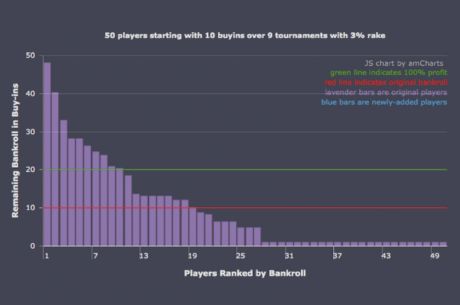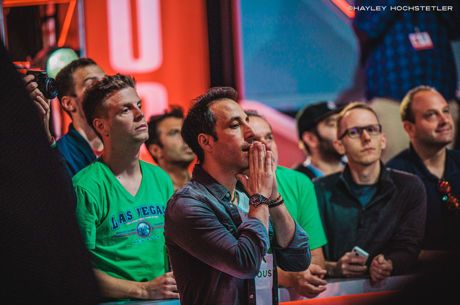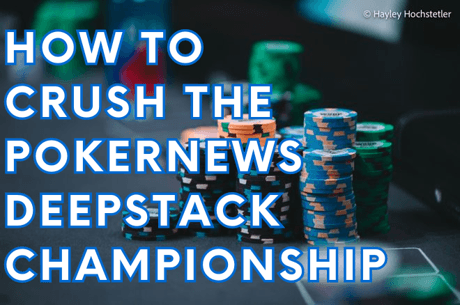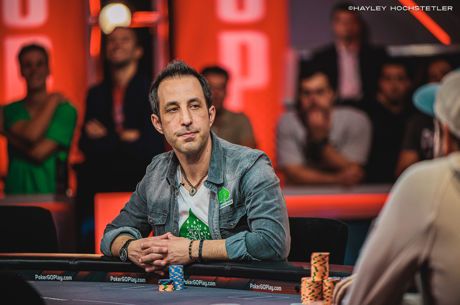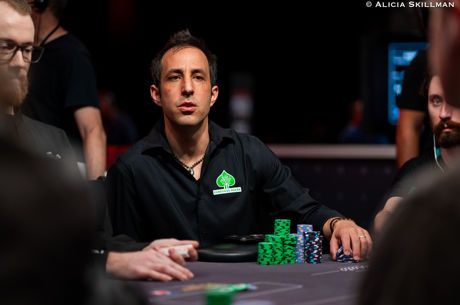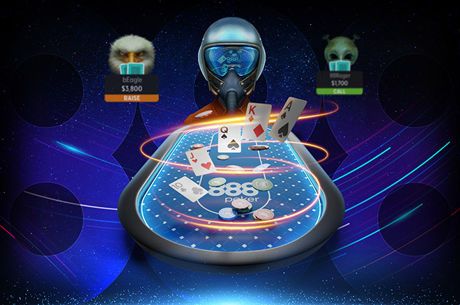Moving Up in Limits? Build Both Your Bankroll and Your Game


Bankroll management is about more than calculations and numbers.
I know that’s not what you want to hear. You want to know how many buy-ins you need to play in a certain cash game, or to grind certain tournaments. There’s comfort in knowing that you have enough money to “handle” a downswing. But the fact is sometimes, by moving up limits, you’re setting yourself up for a downswing.
Unless you’re Bill Perkins or Richard Yong and have a very large amount of disposable income, maintaining your bankroll is just as important as growing it. The problem is, when most players hit a big score or go on a heater, they immediately want to take a shot. Experiencing the positive side of variance can lead you to believe that you are much better at poker than you actually are, or, even worse, that you will continue to run better than expected.
At the beginning of last year, I was fortunate enough to make a deep run in a large field, $11 buy-in online tournament, finishing fifth for just under $7,000. In all honesty, the only reason I registered the tournament was because it was a quiet Sunday at my apartment in Trinidad and Tobago, and I was bored. I’m not a serious grinder, but when I’m in action, I take it very seriously.
The first thing I did after winning was to go to sleep. (Spoiler alert: 20,000-player tournaments take forever, even online.) The second thing I did was set aside $5,000 for real-life expenses. This left me with $2,000 in my account to mess around with and try to grow into something more.
Like most excited players after a big score, I was ready to grind $20 buy-in multi-table tournaments (MTTs). The rule of thumb is to have 100 buy-ins in your bankroll, right?
Instead of hopping right back onto the virtual felt I took a short break, fearing the after effects of running insanely hot in a tournament. When I did return I fired up some $15 buy-in 18-man sit-n-gos (SNGs). In a perfect world I would play MTTs during my free time, but since I work full-time my free time is very limited. Sometimes I can only grind for an hour or 90 minutes, if that.
Such low buy-in 18-man SNGs aren’t especially difficult, but they’re mostly filled with the same players — the “regs.” Again, these players aren’t unbeatable — if their win rate were incredible they would continue climbing to the higher limits. But they’re good enough to be annoying.
In many ways sit-n-gos are predicated on playing a perfect push-fold strategy and doing your best to ride out the variance. Like any form of poker, it’s much easier when your opponents are making mistakes. But SNGs become especially difficult when your opponents are also moving all in, calling all-ins, and folding correctly.
After a few sessions in these games, I quit. It wasn’t worth it. My sample size was much too small to derive any relevant findings, but I knew that any edge that was available was much too small. My bankroll was “large enough” to play these games, and my opponents weren’t spectacular, but the players were proficient enough to turn me off.
I was rolled for these games financially, but they didn’t make financial sense. I would have to grind for a very long time to eek out a very small ROI.
As low-stakes poker players, moving up in the ranks is important. We always want to climb higher in order to compete for “real money,” and salivate at the idea of playing bigger tournaments and cash games once we hit that big score.
Unfortunately, just because you hit that big score doesn’t mean you’re ready to play bigger, or that you’re ready to experience more meaningful swings in your bankroll. I learned this firsthand, but thankfully I quit while I was ahead of the game and was able to maintain my initial roll.
Photo: “Flipping Money Bankroll Girls,” Steven Depolo. Creative Commons Attribution ShareAlike 2.0 Generic.
Get all the latest PokerNews updates on your social media outlets. Follow us on Twitter and find us on both Facebook and Google+!

